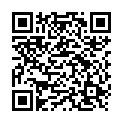|
|
|
| Module code: KI440 |
|
|
2V (2 hours per week) |
|
2 |
| Semester: 4 |
| Mandatory course: yes |
Language of instruction:
German |
Assessment:
Ninety-minute written exam
[updated 20.03.2007]
|
KI440 (P222-0036) Computer Science and Communication Systems, Bachelor, ASPO 01.10.2014
, semester 4, mandatory course
|
30 class hours (= 22.5 clock hours) over a 15-week period.
The total student study time is 60 hours (equivalent to 2 ECTS credits).
There are therefore 37.5 hours available for class preparation and follow-up work and exam preparation.
|
Recommended prerequisites (modules):
KI370 Digital Technology
[updated 01.04.2003]
|
Recommended as prerequisite for:
KI642 Database Management
[updated 05.12.2011]
|
Module coordinator:
Prof. Dr.-Ing. Jürgen Schäfer |
Lecturer:
Prof. Dr.-Ing. Jürgen Schäfer
[updated 01.04.2003]
|
Learning outcomes:
Students will learn about the structure, organization and operational principles of a digital computer. The architectural elements of a computer will be discussed at the register level and then combined to create a illustrative computer architecture. The processes during command execution and the addressing techniques used will also be explained. Performance enhancement methods, such as pipelining and the use of cache memory, will also be addressed.
[updated 13.03.2007]
|
Module content:
1. Number representation in computers
2. Memory components
3. Demonstration computer “DemoCom”
4. Von Neumann architecture
5. Microprogramming
6. Instruction-set architecture
7. Interrupt handling
8. RISC processors
9. Pipelining
10. Cache
[updated 13.03.2007]
|
Recommended or required reading:
W. Schiffmann, R. Schmitz: Technische Informatik 2, Springer-Verlag, Berlin, 1999
K. Wüst, Mikroprozessortechnik, Vieweg-Verlag, Braunschweig, 2003
H. Malz, Rechnerarchitektur, Vieweg-Verlag, Braunschweig, 2004
J. L. Hennessy, D. A. Patterson: Rechnerarchitektur Analyse, Entwurf, Implementierung und Bewertung, Vieweg-Verlag, Braunschweig, 2004
P. Herrmann : Rechnerarchitektur – Aufbau Organisation und Implementierung, Vieweg-Verlag, Braunschweig, 2000
[updated 13.03.2007]
|
Module offered in:
SS 2018,
SS 2017,
SS 2016,
SS 2015,
SS 2014,
...
|


